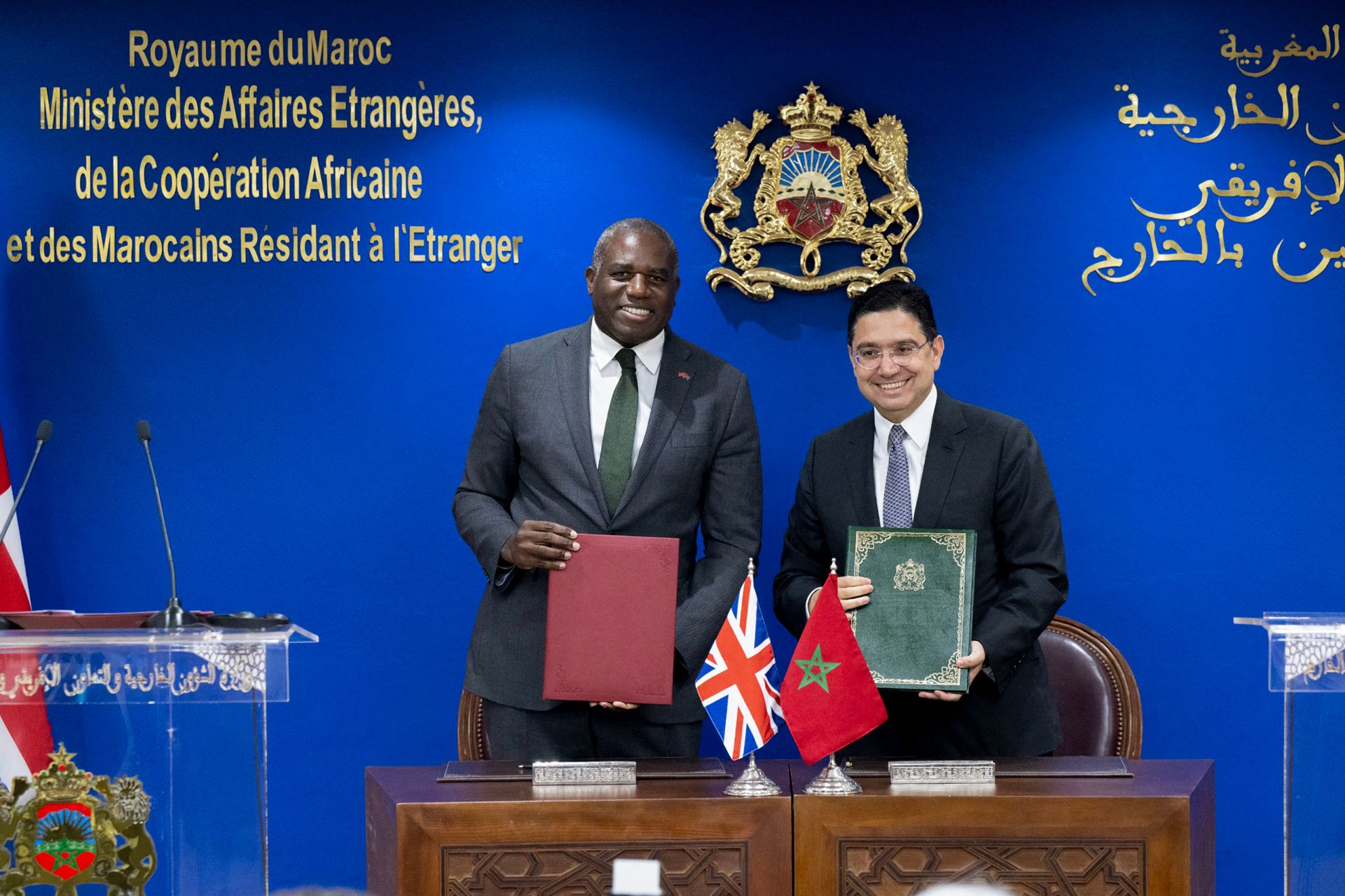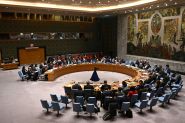- Home
- Middle East
- British FM Says Morocco’s Autonomy Plan for W. Sahara ‘Most Credible’ Solution

Britain's Foreign Secretary David Lammy (L) and his moroccan counterpart Nasser Bourita sign agreements in Rabat on June 1, 2025. ©Moroccan Press Agency / AFP
British foreign minister David Lammy said on Sunday that Morocco's autonomy plan for the territory of Western Sahara was the "most credible" solution to the decades-long dispute, reversing London's long-standing position.
Western Sahara, a mineral-rich former Spanish colony, is largely controlled by Morocco but has been claimed in its entirety for decades by the pro-independence Polisario Front, which is backed by Algeria.
Morocco has been campaigning for broad support for its autonomy plan after obtaining US recognition of Morocco's sovereignty over the disputed territory in 2020, in exchange for the normalisation of diplomatic relations with Israel.
"The United Kingdom considers Morocco's autonomy proposal submitted in 2007 as the most credible, viable and pragmatic basis for a lasting resolution of the dispute," Lammy told reporters in Rabat.
Britain previously backed self-determination for the disputed territory, which Morocco claims as an integral part of its kingdom.
Moroccan foreign minister Nasser Bourita welcomed the shift, saying the new British position contributed "greatly to advancing this momentum and promoting the UN path towards a definitive and mutually acceptable solution based on the autonomy initiative."
Growing European support
Rabat's push for support for its autonomy plan has seen success.
Spain and Germany now officially back the Moroccan autonomy plan, while France last summer recognised Morocco's sovereignty over the territory.
Algeria, which backs the Polisario Front and cut diplomatic relations with Rabat in 2021, said it "regrets" Britain's decision on Sunday to support Morocco's autonomy plan.
"In 18 years of existence, this plan has never been submitted to the Sahrawis as a basis for negotiation, nor has it ever been taken seriously by the successive UN envoys," the Algerian foreign ministry said in a statement.
The United Nations considers Western Sahara a "non-self-governing territory" and has had a peacekeeping mission there since 1991, whose stated aim is to organise a referendum on the territory's future.
But Rabat has repeatedly ruled out any vote where independence is an option, instead proposing an autonomy plan.
"This year is a vital window of opportunity to secure a resolution before we reach 50 years of the dispute in November," Lammy said.
The foreign minister also said it encouraged "relevant parties to engage urgently and positively with the United Nations-led political process".
The ceasefire collapsed in mid-November 2020 after Moroccan troops were deployed to the far south of the territory to remove separatists blocking the only route to Mauritania — a route they claimed was illegal, as it did not exist in 1991.
The UN Security Council is calling for negotiations without preconditions, while Morocco insists they focus solely on its autonomy plan.
"The only viable and durable solution will be one that is mutually acceptable to the relevant parties and is arrived at through compromise," added Lammy.
In a joint statement, the United Kingdom noted that its export credit agency, UK Export Finance, may consider supporting projects in the Sahara as part of its commitment to mobilise 5 billion British pounds (approximately 5.9 billion euros) for new economic initiatives in Morocco.
AFP
Read more



Comments